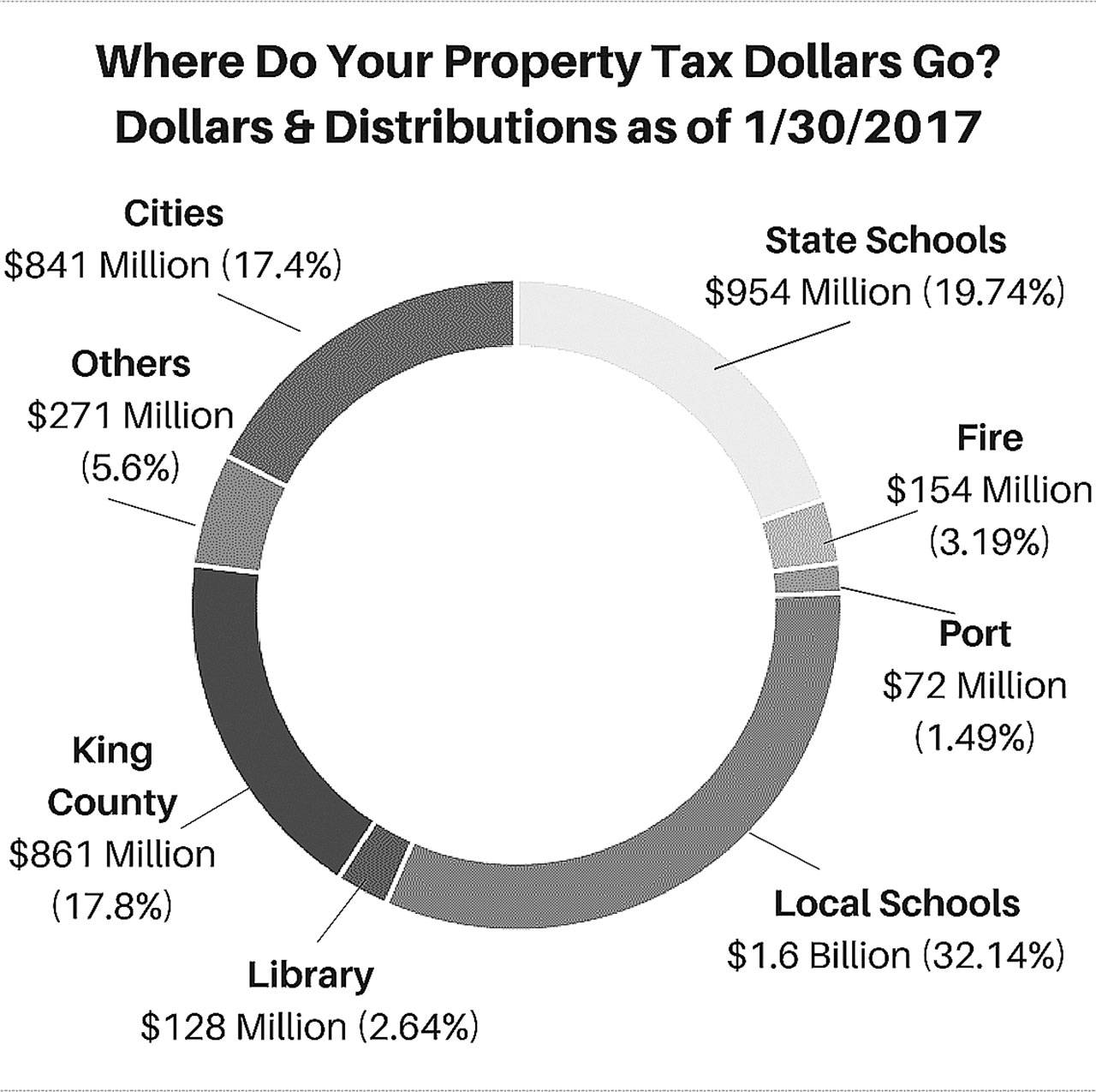King County Treasury began sending out annual property tax bills on Feb. 14. King County collects property taxes on behalf of the state, the county, cities, and taxing districts (such as school and fire districts), and distributes the revenue to these local governments.
Voters have approved several property-tax increases that will make investments in child and youth development, public safety, and transportation, including more Sound Transit rail and bus service throughout much of King County. In some parts of King County, as much as 50 percent of the property tax bill is the result of voter-approved measures.
New levies approved in 2016 for collection this year include:
· Sound Transit 3 (ST3), which will connect the region’s cities with mass transit including 62 new miles of light rail, bus rapid transit on the north, east and south of Lake Washington, expanded passenger capacity on Sounder south line trains and parking, bike and pedestrian access improvements at stations throughout the system;
· Public safety levies in Normandy Park, Snoqualmie, and Shoreline;
· School levies in the Auburn, Federal Way, Tukwila, Seattle, Renton, Mercer Island, Kent, Vashon Island, Lake Washington, and Highline school districts; and
· Renewal of the Low-Income Housing levy in Seattle.
“Voters are saying yes to spending money on valuable government services, such as schools, fire protection, and transportation improvements. But we know that can be especially tough for those on fixed incomes,” said King County Assessor John Wilson. “That’s why we’ve been aggressively reaching out to seniors, veterans and disabled homeowners with the property tax exemption program.”
Low-income seniors, veterans and disabled homeowners may qualify for a property-tax exemption offered by the Assessor’s office. Information on how to apply for an exemption, along with other property-assessment-related information, is available at kingcounty.gov/assessor.
Nearly 5,000 King County homeowners applied for the exemption last year.
Property taxes vary depending upon property location, the assessed value of the property, and the number of jurisdictions levying taxes (such as state, city, county, school district, port, fire district, etc).
In recent years, schools have become more dependent on local levy dollars, and numerous special levies have been passed to fund services that were once funded out of state general tax revenue.
With property taxes going up 8 percent on average, that means countywide property tax billings will be $4.8 billion in 2017, up from $4.5 billion last year. Aggregate property values in King County increased by nearly 11 percent, going from $426.3 billion in 2016 to $471.5 billion in 2017.
The majority of property tax revenue, 52 percent, pays for schools. It also pays for police, fire protection, parks and libraries. The county receives less than 18 percent of the property tax revenue it collects.
While many people assume that county revenue increases as property values rise, that’s actually not the case. A state law limits the amount of additional revenue counties receive from an existing property tax to no more than 1 percent each year. One exception is revenue generated from new construction. As a result, the revenue that supports the county’s General Fund does not keep up with inflation and the increasing demand for services as our population grows.
Property owners can find tax levy rates and more property related information by visiting eReal Property Search on the King County Assessor’s website or by calling (206) 296-7300.
To avoid interest and penalties, the first half property taxes must be paid or postmarked by May 1. The second half property taxes are due Oct. 31.


